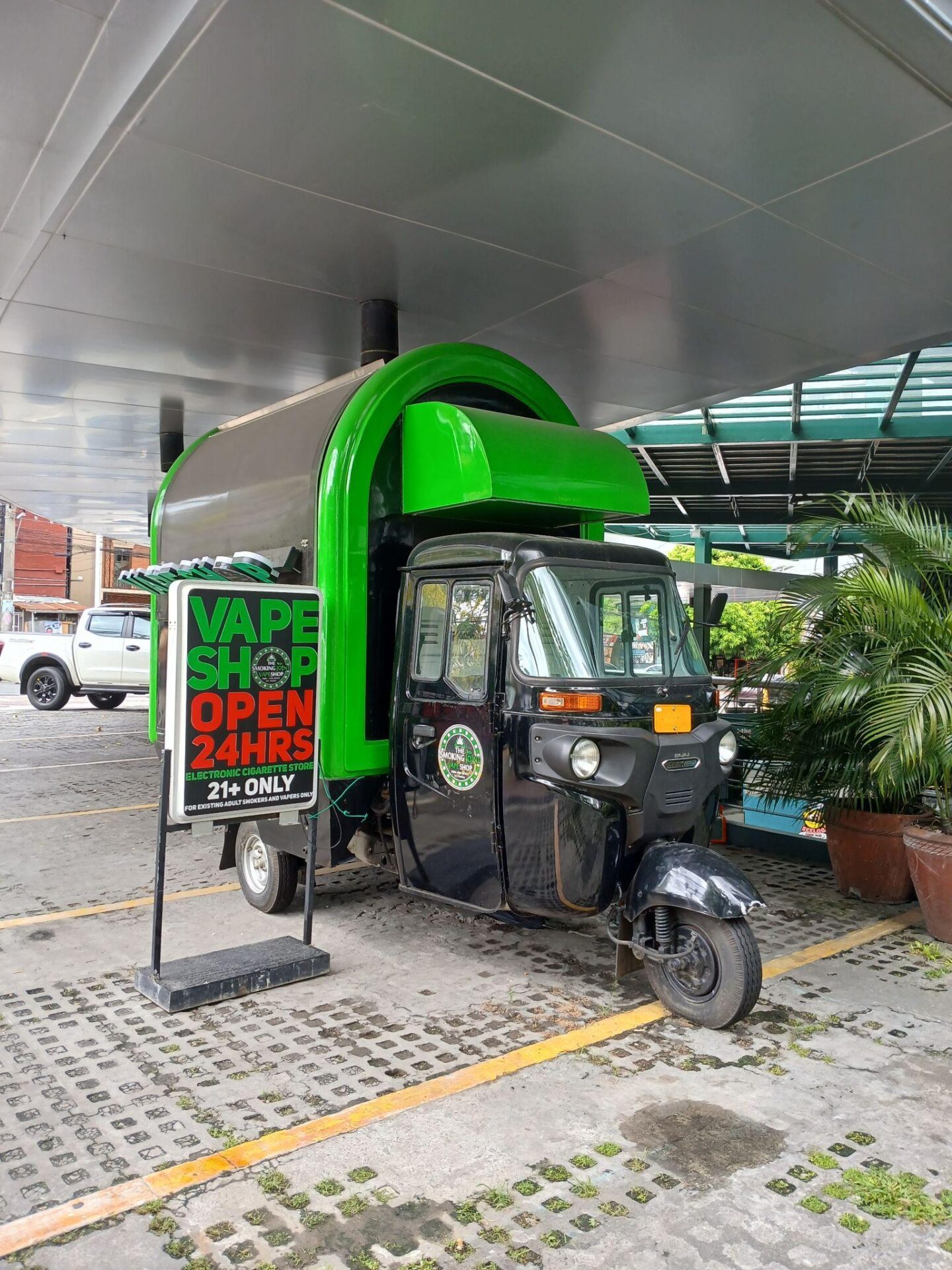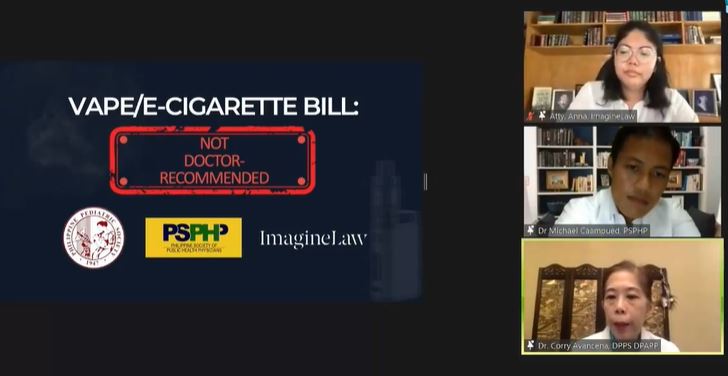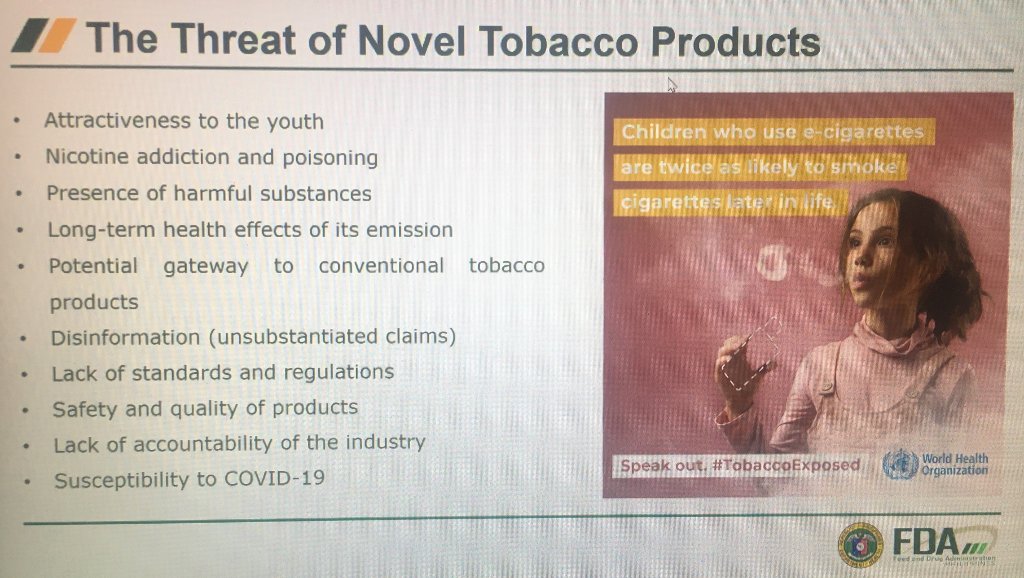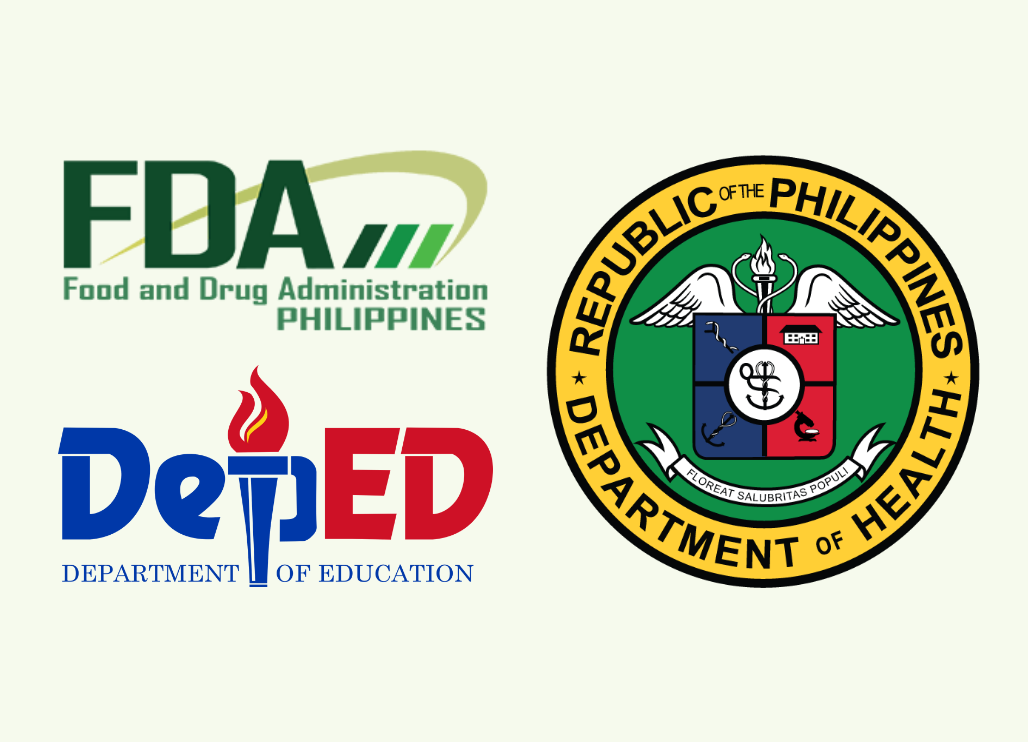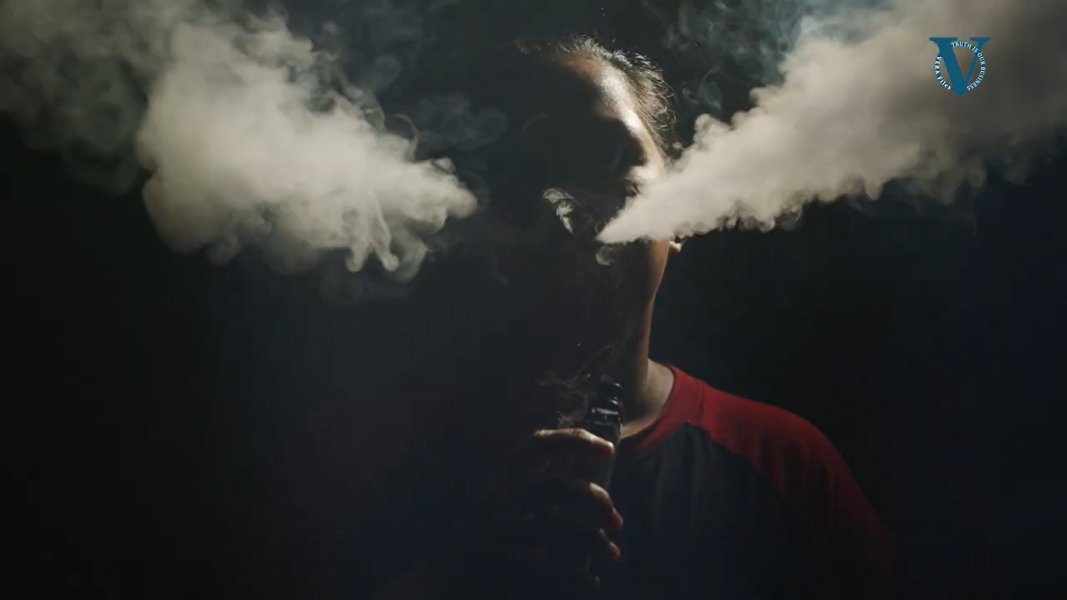MANILA – To many students who went back to school last week, it was like returning to familiar surroundings and old rules: come on time, attend the flag ceremony, be clean and treat each other nicely.
But for 15-year-old Malia, seeing the new signs on the school walls struck her. “I like the new rules, such as no smoking and vaping,” she said.
“I wish these were the same rules at home because my father smokes, and (also) around our barangay because some people smoke,” the high school student lamented.
Malia is one among more than 27 million enrollees in the country’s public school system that was directed by the Department of Education (DepEd) to ban smoking and vaping. Private schools also have similar regulations.
The ban is good, said Au Quilala, deputy executive director of the Philippine Legislators’ Committee on Population and Development (PLCPD) and spokesperson for the Child Rights Network (CRN), but she said the DepEd and other government agencies “need to fully and effectively implement a smoke and vape-free policy” beyond just the ban.
“We need to work together to change behaviors and prevent young people from falling into the trap of nicotine addiction,” she told a June 19 news conference.
In the same event, Dr. Miguel Angelo Mantaring, director of the DepEd’s Bureau of Learner Support Services, acknowledged the need for stronger interventions beyond the schools.
“We are dealing not just with a public health issue, but with a calculated industry assault on child’s rights, learners’ safety, and our country’s future,” he said.
“In our schools, we are already seeing the impacts. Growing incidence of vape use among students have been reported, and even teachers and school heads are being targeted by so-called corporate social responsibility programs of the tobacco and vape industry,” he added.
Mantaring assured parents and learners that “we will care for your children and your well-being” as advocates called for a unified and strengthened campaign as schools opened with the winding down of the observance of National No Smoking Month.
Young smokers and vapers
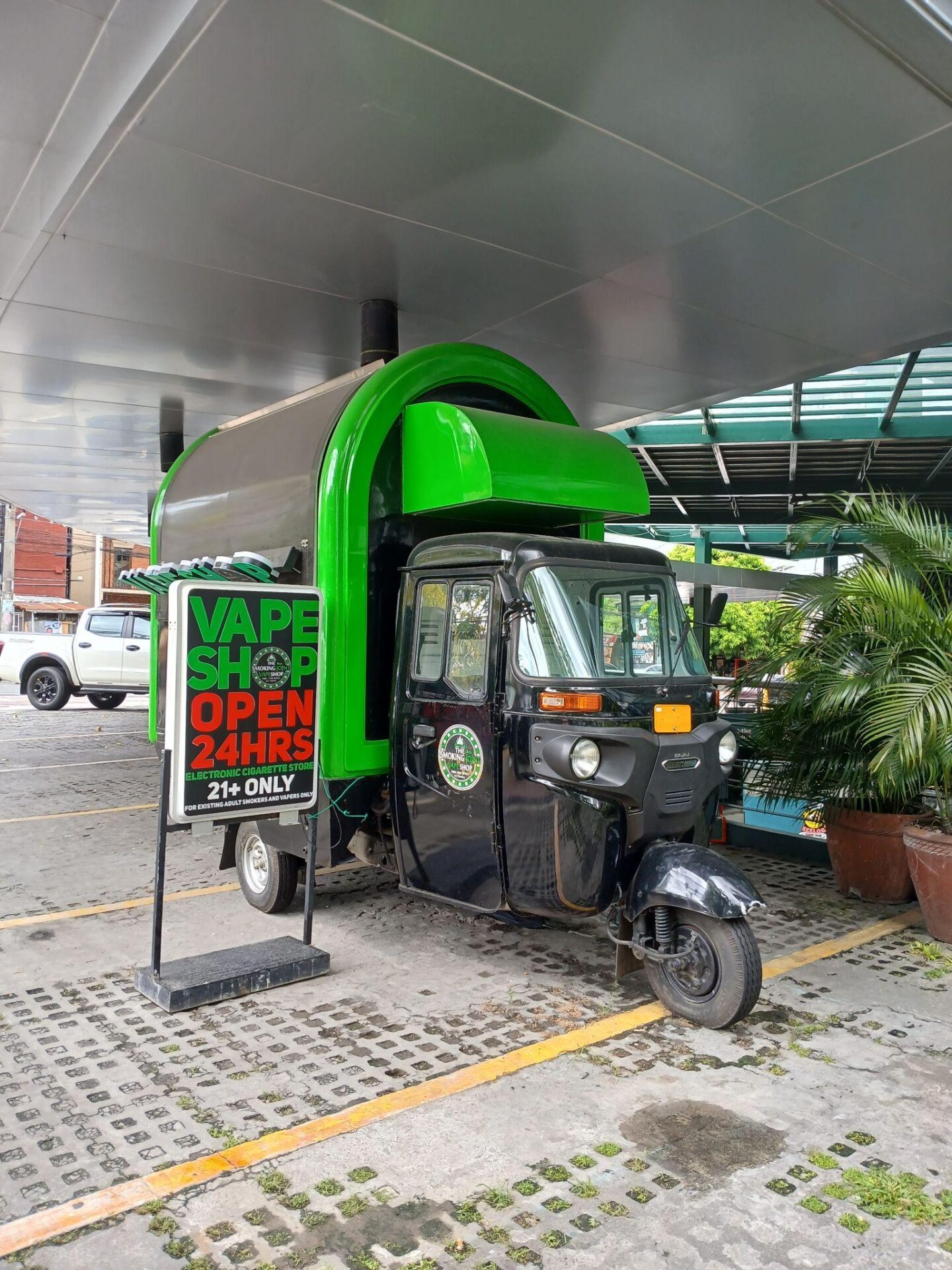
Malia complains about the adult smokers in her family and community, but her generation is more at risk, as there are one million adolescents aged 10 to 19 who now smoke and vape, according to the 2023 National Nutrition Survey of the Department of Science and Technology.
The 2021 Young Adult Fertility and Sexuality Study of the University of the Philippines Population Institute said one in 10 youth is smoking, and while 41% are smoking fewer than five sticks a day, three in four want to stop smoking.
But the desire to stop smoking is not an entirely positive thing because many who quit cigarettes shift to vaping, which medical authorities claim is just as harmful to one’s health, contrary to what the tobacco industry is telling the public.
In the 2019 Global Youth Tobacco Survey, one in every seven Filipino students aged 13 to 15 is already vaping or using e-cigarettes.
In this survey, Health Secretary Teodoro Herbosa said vaping among the youth increased to 24.6 percent of that age group in 2019 from 11.7% in 2015.
During the observance of World No Tobacco Day on May 31, Herbosa led a news conference with the chiefs of the top government hospitals to call on the youth to stop smoking and vaping.
“We would like to tell young people again and again – vaping is not a safe alternative to smoking,” the health secretary said.
“The oils that are used to give certain flavors to vapes are harmful, and could cause lung and oral cancers, atherosclerosis, and other respiratory and cardiovascular diseases, including a new one, Evali (e-cigarette or vaping use-associated lung injury),” he said.
Helping youth fight back
Anti-tobacco advocates concerned about the increasing numbers of youth smokers and vapers have turned to the tobacco industry’s targets themselves – the youth – by helping them fight back.
The PLCPD, one of the advocates, said it believes in the youth’s potentials as effective advocacy spokespersons, as it partnered with the Campaign for Tobacco-Free Kids in holding the “Young Leaders Program for Tobacco Control” leadership program that prepares young leaders to be the next generation of tobacco control policy advocates.
Jointly with the Child Rights Network, the PLCPD also runs the Tobacco-Free Generation communication campaign that partners with content creators, cartoonists and campus journalists to expose the tactics of the tobacco industry and stir public action through creative storytelling and editorial cartoons.
Recently, Vital Strategies, a global public health organization, partnered with PLCPD, Pitik Bulag, Explained PH, and the Child Rights Network Young Leaders Program for Tobacco Control in the launch of a dialogue and exhibit called “YOU-TH Push Back: Unmasking Tobacco Industry Deception,” a media and communications training program that empowers campus journalists, cartoonists and content creators to counter tobacco industry influence.
Similarly, the “TobaccOFF NOW!” movement was also launched by the Philippines Positive Youth Development Network and the Take Back Our Future project team that created a national campaign with over 170 young people to combat industry interference.
Pushing further
Lawyer Benedict Nisperos, legal consultant of HealthJustice Philippines, said seven countries in Southeast Asia are now implementing an absolute ban on vape products, and challenged the government to do the same.
“We call on the government to act on this vape and nicotine epidemic. We now call on them to pass the policies that we have been pushing for the past Congresses.”
RA 11900 or the Vape Law of 2022 prohibits the sale, promotion, advertising, and product demonstration of tobacco products within 100 meters from school premises or other public spaces frequented by minors.
But anti-tobacco advocates say tougher measures are needed to enforce the law, which is being violated by many vape sellers and being bypassed by online shopping platforms.
Health advocates have criticized the law because it made the so-called novel tobacco products more accessible to the youth after it lowered the age of access to these products from 21 to 18 years old and transferred regulatory oversight to the Department of Trade and Industry from the Food and Drug Administration. It also allowed dozens more flavors which appeal to the youth.
During the World No Tobacco Day event, Herbosa said the Department of Health, in partnership with DepEd, will launch an education initiative to ban vaping throughout the country and will continue to push for legislation.
Along with the chiefs of major hospitals, Herbosa emphasized the department’s next steps such as recommending law amendments to make plain all cigarette packaging and other tobacco products and to push for the retention of sin taxes to lessen the demand for cigarettes.
He opted for intensified surveillance and increased penalties for people selling cigarettes and vapes to minors online and to expand the benefit programs of the Philippine Health Insurance Corp. related to smoking cessation.
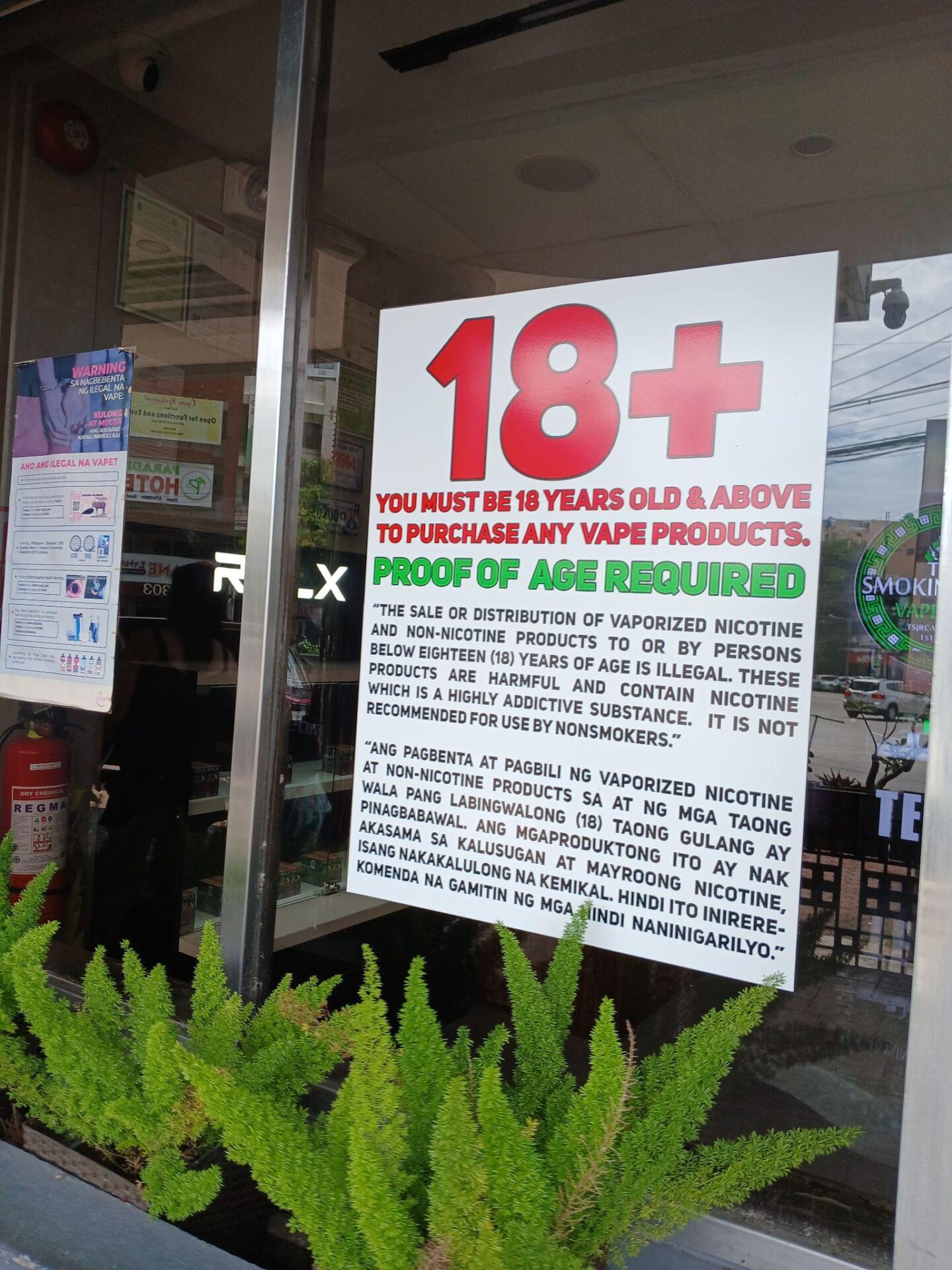
The secretary also said the Lung Center of the Philippines in Quezon City, which implements the country’s first quitline service, is working to improve the smoking cessation program.
According to the World Health Organization (WHO), tobacco use results in around eight million deaths every year, as it called on countries to ban flavored tobacco and nicotine products, and fight the tobacco industry’s harmful tactics, especially those targeting young people.
In the Philippines, the WHO said more than 115,000 deaths occur annually due to strokes, cancers and heart attacks because of tobacco and vape use, including alcohol.
World conference on tobacco opens in Dublin
Against a backdrop of the global struggle to counter tobacco industry interference, the World Conference on Tobacco Control (WCTC), the leading global event on tobacco control, is meeting in Dublin, Ireland June 23-25.
The conference, the first in-person gathering since 2018 (held in Cape Town, South Africa) because of the pandemic, will reunite thousands of academics, health professionals, policy makers and non-government organizations from over 100 countries.
The WCTC is organized by the International Union against Tuberculosis and Lung Disease or The Union, a global health organization and the philanthropic organization Bloomberg Philanthropies, with the WHO and other health bodies participating.
At the WCTC held in Abu Dhabi in 2015, the Philippines received recognition for passing the Sin Tax Law of 2012 that imposed higher taxes on tobacco and alcohol products for a more efficient tax collection to expand health care coverage.
But at the11th session of the Conference of Parties to the WHO Framework Convention on Tobacco Control last year, the Philippines was again chosen to receive the “Dirty Ashtray” Award, which is given to countries whose public officials support and endorse policies and practices friendly to the tobacco industry.
